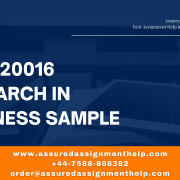Introduction
Professional accounting body is referred to as an association or organization of accountants in a specific jurisdiction. The individual is required to be member of such a professional body or organization in order to reach out to the public of specified jurisdiction and offer them services as accountant. According to Brooks and Dunn (2011) an accountant is defined as a practitioner who practices accountancy or accounting and accountancy is referred to as the study of measurement, provision or disclosure of assurance about the financial managers. Accountants mainly help the managers, tax authorities, investors and other businesses to make appropriate decisions regarding financial matters or allocation of resources efficiently. The accounting professionals are required to abide by the code of ethics which has been developed by the accountant federation. The main objective of such code of ethics is to promote public interest as well as strengthen the dignity of the accounting profession. International Federation of Accountants(IFAC) have developed Ethics Standards Board for Accountantswhich is a professional body that is responsible for development of code of ethics and practice standard that are required to be followed by the accounting professionals in order to offer accurate and appropriate financial or accounting services to the public. Ethics Standards Board for Accountantshas developed APES 110 code which has been implemented in accountancy study and the framework of APES 110 is required to be followed by the accounting professionals to meet the needs of the public. APES 110Code of Ethics for Professional Accountantshas been issued by Accounting Professional & Ethical Standards Board Limited (APESB)and it has been responsible for setting the frameworks and standards of working for the professional accountants(Accounting Professional and Ethical Standards Board (APESB), 2013).
Contribution of APES 110 towards the development of greater trust of public in accounting profession
APES 110 have been divided into three distinct parts and they are Part A, Part B and Part C. Part A includes fundamental principles of the code of ethics for professional accountants. The profession of accountants do not just revolve around satisfying their clients or the customers. It also ensures that the interests of the public are efficiently met by the quality and standards of practices of the professional accountants. The members who are the part of professional body of accountancy are required to abide by the principles and code of ethics in order to deliver efficient financial services to the clients(Accounting Professional and Ethical Standards Board (APESB), 2013).
Elaboration of Part A, Part B and Part C of APES 110
Part A: this part mainly deals with the development of the vital principles of the professional accounting ethics for the accounting professionals. It provides a direction to the accountants o follow so that they cater superior quality of services to the public and their clients. The principle mentioned in Part A of this code is the identification and determination of any threat to the clients or the public related to financial matters. Then the accounting professionals are required to minimize the negative impact of the threat or entirely remove the threat to prevent loss to the public or the clients. This is the provision of providing safeguard to the individuals to protect them from the threats. The threats which have been identified by the accountants are required to be minimized to the accepted level and informed to the clients or the public (Brooks and Dunn, 2011).
Part B
The conceptual framework which has been developed in Part A is required to be applied in various situations efficiently. Part B depicts the ways in which the conceptual framework of Part A can be applied to general public or individuals. It provides the ways on which the threats identified can be addressed efficiently in order to comply with the fundamental principles of APES 110 while serving individual clients (Brooks and Dunn, 2011).
Part C
This is similar to Part B but it deals with utilizing the ways of applying the conceptual framework developed in Part A in case of business or business entities. The only differentiation between Part A and Part B is that the former is used in case of accounting for individuals or the public and the latter is mainly applied in case of business entities.
Contribution of APES 110 towards leveraging trust of the public for the profession of accounting
The APES 110 have been developed based on various fundamental principles which are required to be followed by the professional accountants. The principles are integrity, confidentiality, objectivity, professional behaviour and professional competence.
Integrity: the basic of this principle is the straightforwardness and honesty of the accountants. According to this principles the accountants are required to be straightforward and not manipulative as well as they are required to be honest and not dishonest. The information developed by the accountants on the basis of data collected from the clients must be truly furnished to them without any discrepancy or manipulative activities that lead to misleading statements or financial information. This mean that this factor ensures that the information provided to the public by the accountant is genuine, authentic and correct in nature. This has incredibly increased the trust of the public towards accounting profession on account of no to minimal forgery (Miller and D’Arcy, 2011).
Confidentiality: this is one of the most vital principles of APES 110 wherein the information acquired from the clients are not disclosed by the accountants to any unauthorized or unprofessional personnel. In case there is a requirement to disclose the information to someone else other than the accountant, the professional accountant is required to take the permission of disclosing or transferring the data to another individual. The public is hence much more satisfied as they are asked before their confidential information is shared with some other personnel who are not authorised to access the information of the individuals. The information given to the accountants by the clients comprises of various financial figures which might serve the purpose of objective of the competitor or rivals of the individuals or a business and hence the principle of confidentiality has led the people trust the accounting profession (Pakaluk and Cheffers, 2011).
Objectivity: the main objective of the accountants is to develop accurate and appropriate financial data for the public or their clients. Hence, while developing the financial statements or other information the accountants should not be swayed away by the opinions of the others and do not deviate from the actual data which has been developed. This helps in reducing the interference of biased opinions while developing the financial information. Biased opinions or influence of external personnel might make the accountants override the professional or business judgements. Hence, the public is now aware that the financial information or statements would not be prepared on account of biasness and hence it would be genuine and authentic. The principle of objectivity has hence increased the level of trust of the public towards the accounting profession (Accounting Professional and Ethical Standards Board (APESB), 2013).
Professional competence: the code APES 110 includes the principle that the professionals accountants are required to pass the relevant examination and also certificate of practice in order to acts as an accountant. This principle ensures that the accountants have the right educational qualification, skills, expertise and potential to be an accountant and deliver services to the clients. The professionals are required to be competent and have the required knowledge about the latest trends in accounting like the regulations, legislations, laws, practices, ethical standards, etc. to ensure that they do not take up unethical practices or activities which might incur a loss to the clients or the public to whom the accountant is offering a service (Pakaluk and Cheffers, 2011).
Professional behaviour: this principle means that the professionals should maintain a good professional behaviour to keep the clients happy and satisfied. The behaviour includes compliance of the accountant with all the legislation and regulations which has been applied by the regulatory body concerned with accounting ethics to ensure that the standards of accounting are met efficiently.This helps in increasing the trust of the public on the accountants and they rely or are dependent on the accountant to prepare their financial statements (Pakaluk and Cheffers, 2011).
Conclusion
This essay provides an in depth knowledge about the importance of code of ethics in accounting. It is quite evident that the application of APES 110 has significantly helped in increasing the trust of the public on the professional accountants. It is also observed that the code of ethics ensure the confidentiality of information of the public are maintained, the accountants are compelled to have an ethical and good professional behaviour along with the required skills and educational qualifications to deliver efficient services to their clients or the public.
References
Pakaluk, M. and Cheffers, M., 2011.Accounting ethics.
Accounting Professional and Ethical Standards Board (APESB), 2013. APES 110 Code of Ethics for Professional Accountants.
Brooks, L.J. and Dunn, P., 2011. Business & professional ethics.Cengage Learning.











